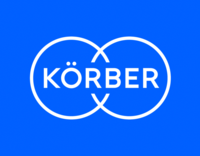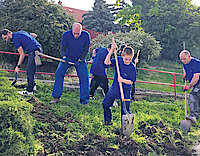A real competition
The second step is to determine the specific potential of a project idea. The key questions are: Is the identified problem specific to one customer or also applicable for other companies in the same market or in other markets? How is the problem being solved today? What are other industries where this problem could occur? What is the return on investment (ROI) that can be achieved for a customer with a digital solution? What is the product vision and the first product version? What solutions already exist in the market and where could the unique selling proposition lie? Is it better to buy-in a digital solution, develop it by yourselve, or approach it in co-creation with partners or customers?
“We work with hypotheses, test them, and try to generate more and more knowledge over time in order to make good business and product decisions,” explains Nick Retzmann. The selection process can sometimes be painful. In addition to clearly defined evaluation criteria, he says, the involvement of external experts from the fields of venture capital and start-up investment is helpful – as is genuine competition. “Having many good ideas is a prerequisite for innovation, but for resource reasons, only the most promising ideas move forward in the process,” says Nick Retzmann. “Focus is the key here as well.”
If Körber decides to pursue the identified opportunity, a project team will be established. The composition of the team is crucial for the success of the development, says Nick Retzmann: “It is important that the team members complement each other optimally. For the project to be as successful as possible, it needs not only different disciplines, from strategic design, venture and software architect to product owner, but also complementary qualities and characters – strategists and visionaries, pedants and pragmatists, courage and composure, as well as passion and intuition. The teams, he says, are given a high degree of personal responsibility, they work in sprints, have flat hierarchies, and clear goals. And one thing is particularly important to him: “A permanent will to succeed unites everyone in everyday work: Is this really already the best solution? If things don’t go as originally thought, what else can we do to convince the stakeholders or a customer?” The focus, he says, is always on the appropriate mindset and attitude.















![[Translate to English:] [Translate to English:]](/fileadmin/_processed_/4/8/csm_Glover_Fabio_Perini-647_25f894633f.jpg)

